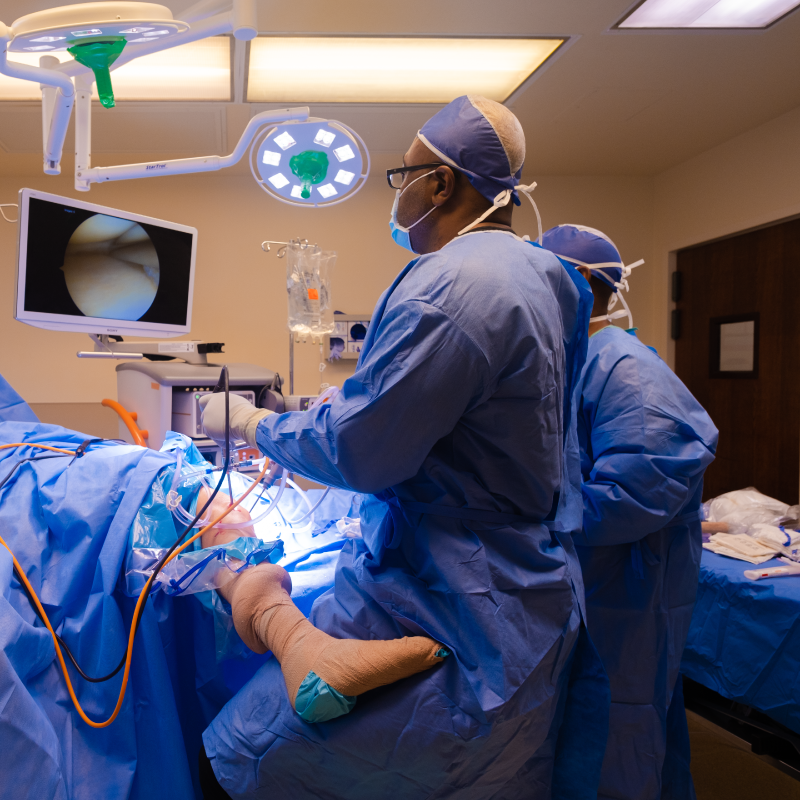Important Questions to Ask Your Orthopedic Surgeon Before Undergoing Surgery
Important Questions to Ask Your Orthopedic Surgeon Before Undergoing Surgery

Undergoing orthopedic surgery can be a significant step toward relieving pain, restoring function, and improving quality of life. However, like any major medical procedure, it requires careful consideration and planning. At Tyrance Orthopedics & Sports Medicine, our goal is to education patients on the most effective and least invasive ways to optimize their health and to avoid invasive surgeries and treatments when possible. One of the most crucial steps in this process is having a thorough discussion with your orthopedic surgeon. Asking the right questions can help you understand the procedure, set realistic expectations, and make informed decisions about your health. Here are important questions to ask your orthopedic surgeon before undergoing surgery.
1. What is the exact diagnosis and why is surgery necessary?
Understanding your diagnosis is the first step in comprehending why surgery is recommended. Ask your surgeon to explain your condition in detail, including the underlying causes and how it affects your daily life. This knowledge will help you grasp why surgery is considered the best option and how it compares to other treatment methods.
2. What are the alternatives to surgery?
It’s important to know what non-surgical options are available, such as physical therapy, medications, injections, regenerative therapies, or lifestyle changes. Ask about the potential effectiveness of these alternatives and why they may or may not be suitable in your case. Here at Tyrance Orthopedics & Sports Medicine, we try to avoid surgery whenever possible by providing advanced, minimally invasive options to help you recover and tackle your persistent pain. To learn more about our regenerative medicine treatments, visit our Regenerative Medicine page.
3. What are the goals of the surgery?
Clarification of what the surgery aims to achieve. Whether, it’s pain relief, improved mobility, or enhanced function, understanding the goals will help you set realistic expectations for the outcome. This will ensure that these goals align with your personal health objectives.
4. What are the risks and complications associated with the procedure?
All surgeries come with potential risks and complications. These can range from infections and blood clots to nerve damage and anesthesia-related issues. Ask your surgeon to outline these risks and discuss how they are mitigated during the procedure. Knowing the possible complications helps you prepare mentally and physically for the surgery and recovery process.
5. What is the surgeon’s experience with this procedure?
Experience matters in surgical outcomes. Inquire about your surgeon’s experience with the specific procedure you’re undergoing. Ask how many similar surgeries they have performed and what their success and complication rates are. A surgeon with extensive experience in your procedure is likely to have refined their skills and techniques, which can contribute to a better outcome.
6. What will the recovery process involve?
Understanding the recovery process is crucial for planning your post-surgery life. Ask about the expected length of recovery, the type of rehabilitation required, and any limitations you might face during the healing period. Knowing what to expect helps you prepare for the physical and emotional challenges of recovery and ensures you have the necessary support in place.
7. How long may the effects of the surgery last?
Some surgeries provide long-term relief, while others might require repeat procedures or have a limited duration of effectiveness. Discuss with your surgeon how long you can expect the benefits of the surgery to last and what factors might influence this duration. This information is important for managing your long-term health and planning for the future.
8. What type of anesthesia will be used?
Anesthesia is a critical component of surgery, and understanding your options is essential. Ask whether general or regional anesthesia will be used and what the associated risks are. Discuss any concerns you have about anesthesia and how they will be addressed to ensure your comfort and safety during the procedure.
9. What can I do to optimize my surgical outcome?
Patients can play a significant role in the success of their surgery and recovery. Ask your surgeon for recommendations on how to prepare for surgery, such as exercises, diet changes, or medications to take or avoid. Additionally, inquire about post-operative care and rehabilitation exercises that can aid in a smoother recovery and better outcomes. Here at Tyrance Orthopedics, we emphasize patient involvement to ensure optimal surgical outcomes.
Conclusion
Preparing for orthopedic surgery involves more than just showing up on the day of the operation. It requires a thorough understanding of your condition, the procedure, and the recovery process. By asking these essential questions, you can gain the knowledge and confidence needed to make informed decisions about your health. At Tyrance Orthopedics & Sports Medicine, we are committed to ensuring you have all the information and support you need for a successful surgical outcome and a smooth recovery.
Meet The Physician
Patrick Tyrance, Jr. MD
Patrick Tyrance, Jr. MD is a Harvard trained Orthopedic Surgeon and passionate holistic health advocate. Prior to becoming an Orthopedic Surgeon, he was a former All-Conference and Academic All-American linebacker at the University of Nebraska and drafted by the LA Rams before completing medical school and orthopedic surgery training at Harvard.
He is known as a compassionate physician and recognized for his surgical skill. In addition to his private medical practice, Dr. Tyrance serves as an advisor to a number of healthcare startups and evaluates patented technologies in medicine and healthcare for their commercialization potential.

REQUEST A CONSULTATION
Need help with an existing injury or ailment?
Meet The Physician
Patrick Tyrance, Jr. MD
Patrick Tyrance, Jr. MD is a Harvard trained Orthopedic Surgeon and passionate holistic health advocate. Prior to becoming an Orthopedic Surgeon, he was a former All-Conference and Academic All-American linebacker at the University of Nebraska and drafted by the LA Rams before completing medical school and orthopedic surgery training at Harvard.
He is known as a compassionate physician and recognized for his surgical skill. In addition to his private medical practice, Dr. Tyrance serves as an advisor to a number of healthcare startups and evaluates patented technologies in medicine and healthcare for their commercialization potential.
REQUEST A CONSULTATION
Need help with an existing injury or ailment?








Leave A Comment